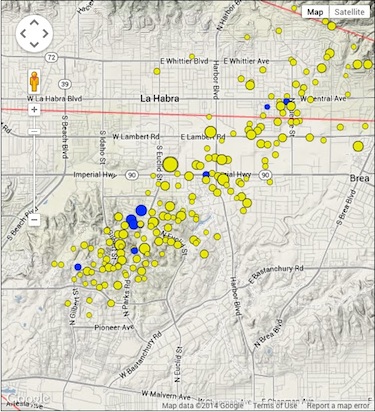Get the full benefits of ESL Podcast by getting the Learning Guide. We designed the Learning Guide to help you learn English better and faster. Get more vocabulary, language explanations, sample sentences, comprehension questions, cultural notes, and more.
Get the Learning Guide and support ESL Podcast today by becoming a Basic or Premium Member!
………
ON MONDAY
ESL Podcast 994 – Describing Accuracy and Inaccuracy
In the Learning Guide: Get a full transcript (written version of every word you hear), vocabulary list and sample sentences, and comprehension questions.
In “What Else Does it Mean,” learn the other meanings of “forgiving” and “to take out.”
In the “Culture Note,” learn about “Saxton Pope.”
“Saxton Pope, born in 1875, is known as the ‘father of’ (person who started or created) modern…” – READ MORE in the Learning Guide
…
ON WEDNESDAY
English Cafe 448
Topics: Famous Songs – “Que Sera Sera”; Bury My Heart at Wounded Knee by Dee Brown; demand versus request versus requirement; discrimination versus segregation; a great deal
In the Learning Guide: Get a full transcript (written version of every word you hear).
In “What Insiders Know,” you will read about “Hair Drops.”
“A hair drop is an ‘ornament’ (something worn on the body or placed on something to make it more attractive)…” – READ MORE in the Learning Guide
…
ON FRIDAY
ESL Podcast 995 – Proper Behavior at a Formal Event
In the Learning Guide: Get a full transcript (written version of every word you hear), vocabulary list and sample sentences, and comprehension questions.
In “What Else Does it Mean,” learn the other meanings of “to loosen up” and “to cheapen.”
In the “Culture Note,” learn about “The Chief of Protocol of the United States.”
“When dealing with other countries, the United States must make sure that it is following ‘protocol’…” – READ MORE in the Learning Guide

 We are in the middle of the spring break season. I say “season” (period of time), because in the U.S., there are no set (fixed; firm) dates for spring break, and each school, school district (collection of schools under the same management), or region decides when to take this typically one- or two-week vacation. For students, this break (temporary stop; short interruption) occurs near the middle of the spring term (period of schooling) and is a welcome respite (short period of rest).
We are in the middle of the spring break season. I say “season” (period of time), because in the U.S., there are no set (fixed; firm) dates for spring break, and each school, school district (collection of schools under the same management), or region decides when to take this typically one- or two-week vacation. For students, this break (temporary stop; short interruption) occurs near the middle of the spring term (period of schooling) and is a welcome respite (short period of rest).

